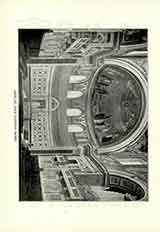

Larrey, DOMINIQUE-JEAN, Baron, French military surgeon, b. at Baudean, Hautes-Pyrenees, July, 1766; d. at Lyons, July 25, 1842. His parents were so poor that he obtained his preliminary education only through the kindness of the village priest. After the death of his father, when the boy was “thirteen years of age, he was sent to his uncle Dr. Oscar Larrey, a successful surgeon of Toulouse. The surgical ability of the family had already been established by his elder brother, Charles-Francois-Hilaire Larrey, recognized as an able surgeon and writer on surgery. At the age of twenty-one the younger Larrey went to Paris, and after a brilliant competitive examination entered the navy. Later he became a pupil of Dessault. He joined the army in 1792, and the next year established the ambulance volante (flying ambulance), a corps of surgeons and nurses who went into battle with the men and tended to their wounds on the battlefield as far as was possible. For this he was made surgeon-in-chief and accompanied Napoleon on his expedition into Egypt. He became a great favorite with Napoleon for his devotion to duty. He was noted not only for his care of the wounded soldiers during and after the battles, but also for his care of the health of the troops at all times. Friends or enemies all received the same devoted attention. For distinguished courage he was made a baron by Napoleon on the field of Wagram in 1809. He was wounded at Austerlitz and at Waterloo. He made many ingenious and important inventions in operations, and significant advances in clinical surgery. His observations in medicine and on the health of troops during campaigns were scarcely less valuable. Some of his suggestions on medicine and surgery are still used. “If ever”, said Napoleon, “the soldiers erect a statue it should be to Baron Larrey; the most virtuous man I have ever known.” He has two monuments, one erected in 1850 in the court of the Val-de-Grace military hospital, Paris, and the other in the hall of the Academy of Medicine. The American surgeon Agnew said of him: “As an operator he was judicious but bold and rapid; calm and self-possessed in every emergency; but full of feeling and tenderness. He stands among the military surgeons where Napoleon stands among the generals, the first and the greatest.” His attachment to his profession was only exceeded by his patriotism. After the exile of Napoleon, deprived of his honors and emoluments, though solicited by the Emperor of Russia and by Pedro I of Brazil to take charge of their armies with high rank, he refused to leave his native land. One of his special pleasures at the end of his life was a meeting with the Abbe de Grace, the preceptor of his early years, whom he held in high veneration. His works have been a favorite study of the surgeons of all nations during the nineteenth century. Most of them have been translated into all modern languages. His principal works are: “Relation histor. et chirurg. de l’expedition de l’armee d’Orient en Egypte et en Syrie” (Paris, 1803), translated into English and German; “Clinique chirurgicale dans les camps et hopitaux militaires”; “Surgical Memoirs of Campaigns: Russia, Germany, France” (Philadelphia, 1832); “Cholera Morbus, Memoire” (Paris, 1831).
JAMES J. WALSH

